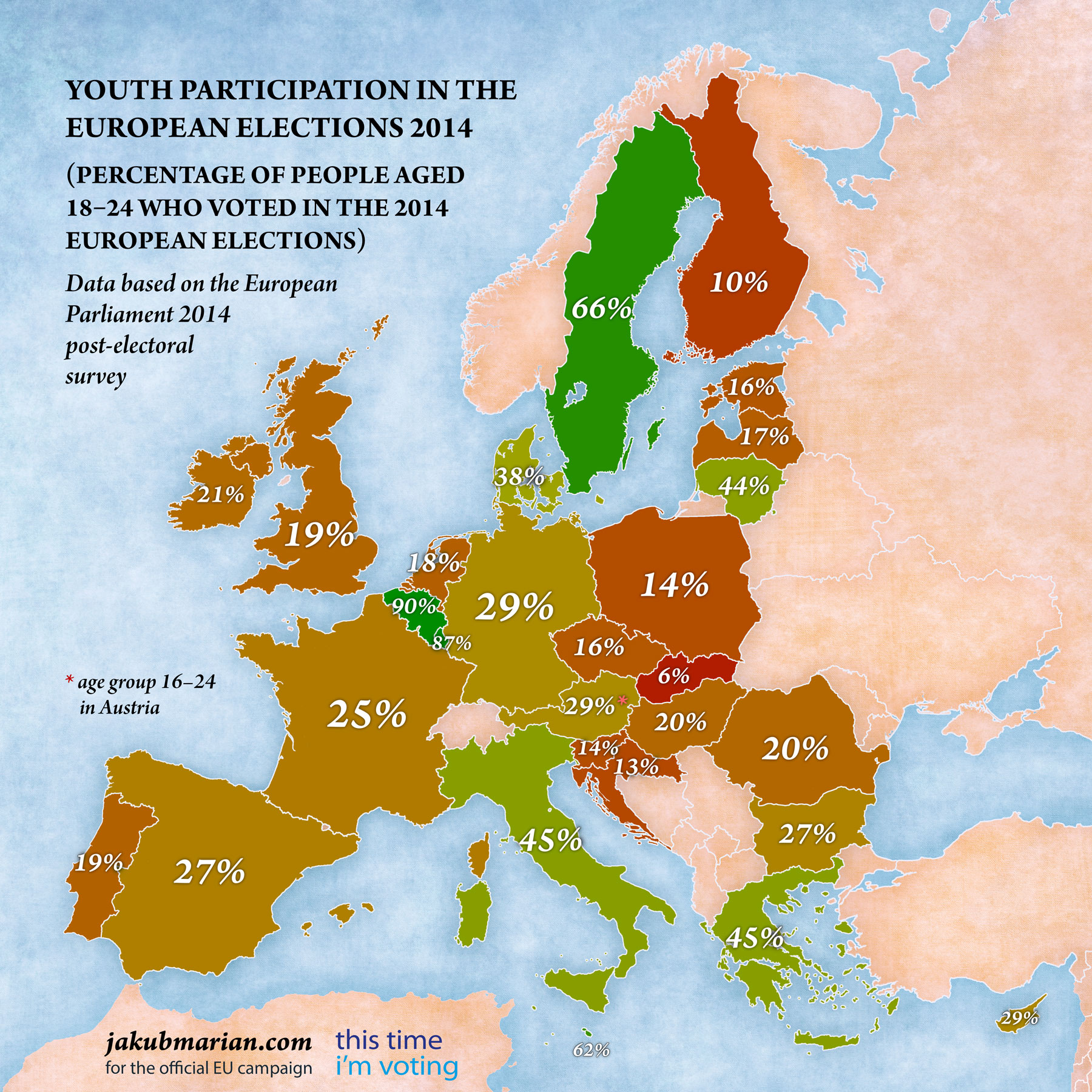The 2019 European elections will take place in less than two months. Many people think about the European elections as about something distant that does not concern them personally (voter turnout tends to be significantly lower in the European elections than in the national elections), but I believe this way of thinking makes little sense, since the European Parliament can pass laws that are above all national laws of any EU member state, even if all voters in the national elections were against that law.
There are significant differences in voter turnout among EU member states. The map below shows the voter turnout by country, within the 18–24 age group:

The differences are quite staggering. It is worth noting, however, that voting in Belgium and Luxembourg (which have the highest voter turnout of all EU member states) is compulsory, unlike other member states. Voting is also compulsory in Greece, but the law is not enforced.
 Tip: Are you a non-native English speaker? I have just finished creating a
Tip: Are you a non-native English speaker? I have just finished creating a  Web App
Web App
